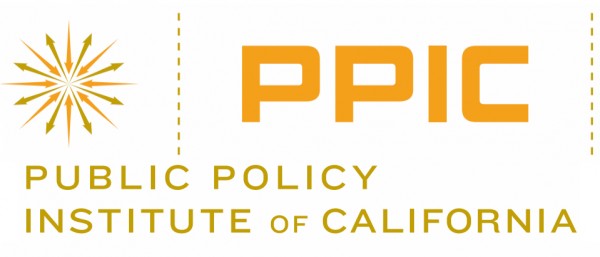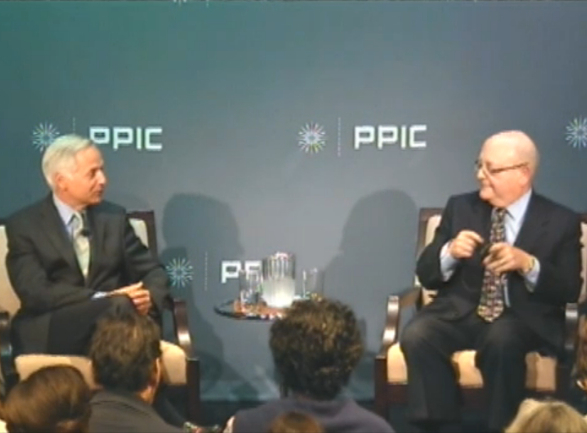UC President Mark Yudof Sees Fundamental Changes Needed in Higher Ed

 The Public Policy Institute of California (PPIC) hosted a discussion with University of California (UC) President Mark Yudof on Tuesday. Yudof reflected on his five years leading the UC system and the state of California education. He sees higher education changing with more online class integration, a changing of degree structures, and better financial aid systems.
The Public Policy Institute of California (PPIC) hosted a discussion with University of California (UC) President Mark Yudof on Tuesday. Yudof reflected on his five years leading the UC system and the state of California education. He sees higher education changing with more online class integration, a changing of degree structures, and better financial aid systems.
The hour long discussion between Yudof and PPIC President Mark Baldassare covered much more, but the event revealed how careful and meticulous Yudof has been in his position.
Left: PPIC President Mark Baldassare, Right: UC President Mark YudofAt the event's opening, co-director of research Hans Johnson provided some context to the issues at hand. He stated that California will be one million graduates short of fulfilling workforce needs by 2025.
Johnson also highlighted the education and corrections spending dilemma; 10 years ago, for every dollar spent on corrections, $1.89 was spent on higher education. Today, the ratio is down to $1 in corrections for every 82 cents in higher education.
Yudof and Baldassare began to converse after a short introduction and Yudof was asked what he views as the biggest challenges for higher education in California.
The central theme was simply money, state disinvestment of the UC system. The UC system experienced a reduction of more than $800 million from state funds since 2008.
Proposition 30 funding will make up for some of the past disinvestment, but is suspect of being a long-term solution. Yudof said higher education should look at new things
Yudof calls the current financial aid system "broken" and looks to Australian and British models that are income-adjusted. This would include repayment plans for loans.
Sticking with the topic of financial aid, Yudof stated that one of his biggest accomplishments as UC president was creating the Blue and Gold program. The program essentially covers tuition for those who have family incomes below $80,000 a year and qualify for federal aid.
Tuition rates have been a contentious topic with Mark Yudof as the head of the UC system. Tuition rates have increased every year he has been in his position.
Yudof has drawn student protests with campus visits. However, he says that tuition can't be frozen for long periods of time and needs to be steadily increased to respond to disinvestment.
The California Legislature has increased its involvement in higher education and Yudof sees this as creating a constructive conversation about the challenges colleges face. He warns there is "no such thing as a simplistic solution" to these issues. If proposals appear to be simple, he doubts it'll be effective.
Higher education policy is complex and one-size fits all solutions hardly work.
Yudof favors local campus control in certain situations. Tuition rates should be kept a UC system decision, while faculty compensation may be better suited for individual campuses.
"You have to think hard about it when someone says 'let's do it locally'," he stated.
He sees online classes and MOOCs (Massive Open Online Course) integration as inevitable, but never replacing real classes. Yudof stresses the social aspect of education as valuable to the UC system. He speculates that 10 percent of classes can be shifted to online resources for cost savings, but is a concept that still needs heavy development.
The importance of higher education policy is the production of a skilled workforce. Johnson, Baldassare, and Yudof pointed this out.
It takes a UC student about 4.2 years to graduate and Yudof says the system should be moving closer to a 4-year average. Moving students to the workforce at a faster rate is a mutually beneficial endeavor.
Mark Yudof will step down from his position as UC president in August and anticipates a return to teaching law and public policy.
The discussion went in far greater detail and will be accesible online. PPIC media contact Andrew Hattori said the webcast will be made available late Wednesday or early Thursday.





